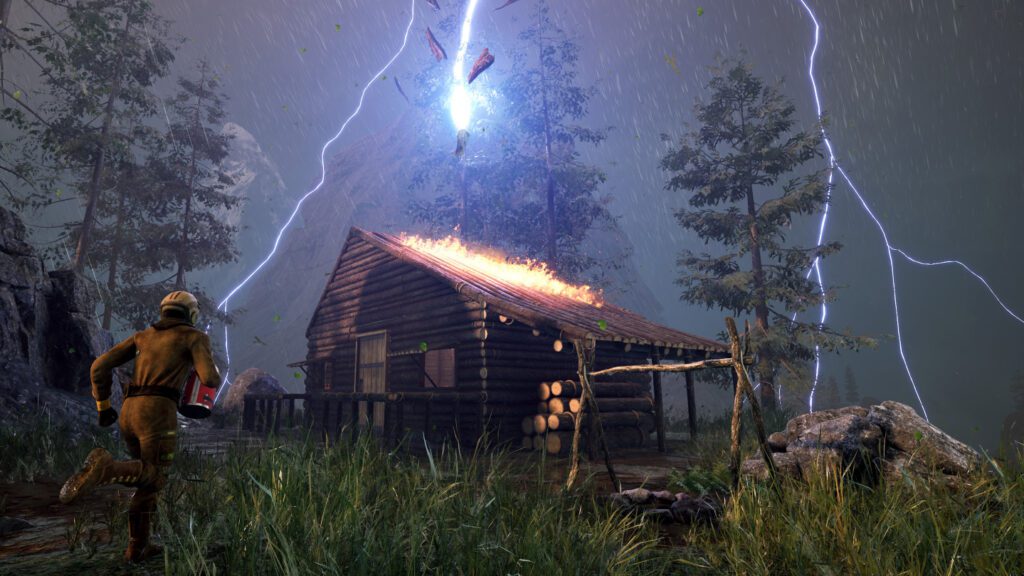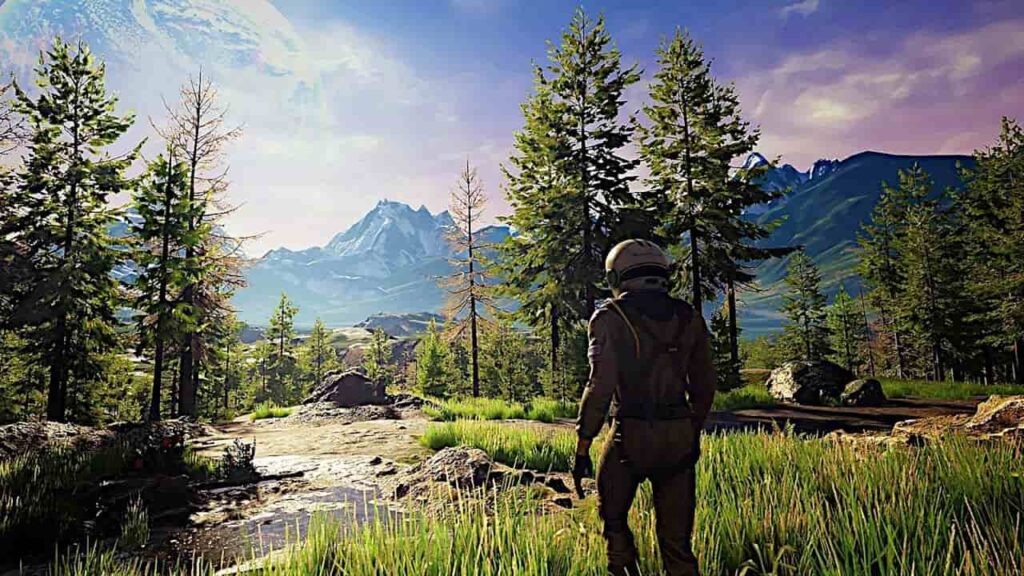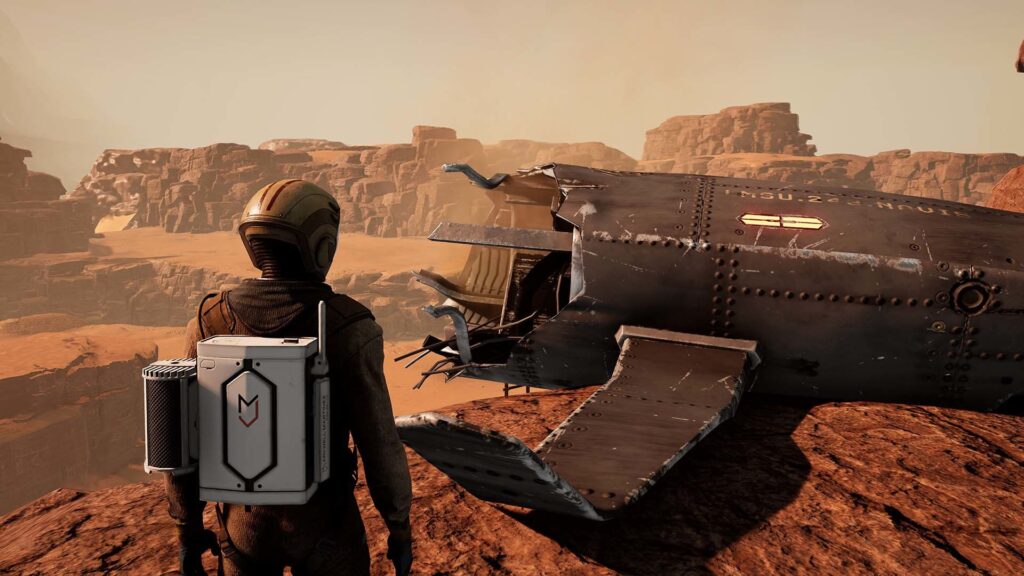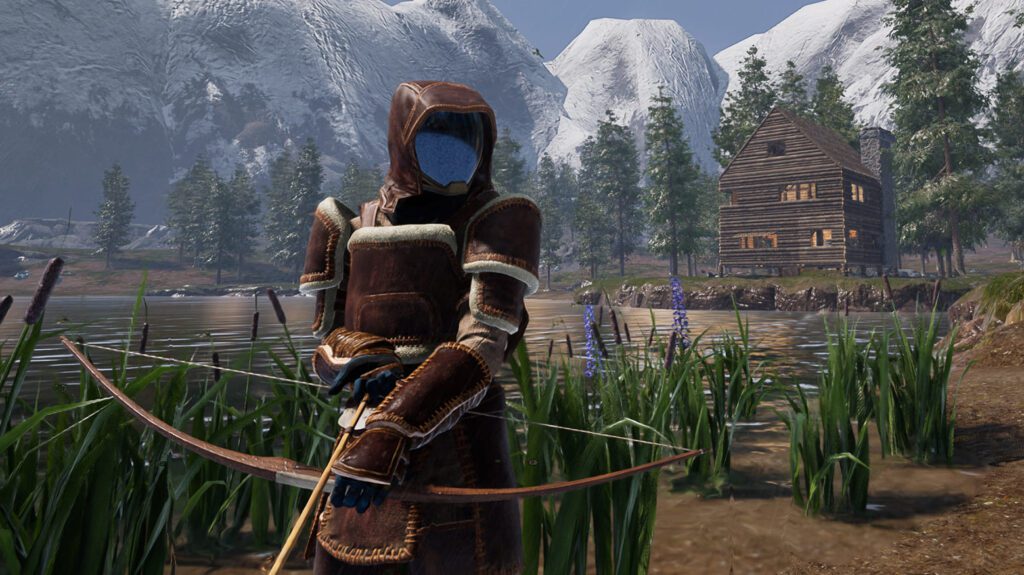Ever dropped onto a planet that’s supposed to be Earth’s backup but turned into a nightmare? That’s the hook with Icarus game, where you play as a prospector chasing rare stuff while dodging killer storms and hungry beasts. It’s got that survival vibe but with a twist—you’re on timed drops from space, making every run feel urgent. Dean Hall, the guy behind DayZ, cooked this up, and it’s evolved a ton since launch. If you’re tired of endless grinds in other games, this one mixes building, hunting, and escaping in a way that keeps you hooked. Just don’t forget your oxygen, or it’s game over quick.
What is Icarus?
Icarus is a PvE survival game for up to eight players that challenges you to explore a savage wilderness in the aftermath of terraforming gone wrong. Unlike traditional survival games where you build permanent bases, Icarus introduces a revolutionary time-pressure element: complete your mission and return to orbit before the timer runs out, or lose everything.
Icarus comes from a smaller team at RocketWerkz, so it skips the massive budgets of those triple-A blockbusters like GTA VI or The Witcher IV—more passion project than Hollywood production. If you wanna see what the big studios are cooking up in 2025, this AAA games overview lays it out.

The premise is compelling and grounded in science fiction. The game takes place on the fictional planet Icarus, located roughly four light years from Earth, where an attempted terraforming procedure failed due to unforeseen complications from exotic materials. Players become prospectors, dropping to the planet’s surface to complete contracts, gather resources, and hunt for valuable exotic matter—all while racing against the clock.
Core of Icarus Gameplay
Icarus gameplay throws you right into the action without much hand-holding, which is part of its charm but can frustrate newbies. You start in orbit, picking a mission or open world drop, then plummet to the surface with basically nothing. Gathering sticks, rocks, and oxite for oxygen is your first hustle, and it sets the pace for everything else. As you level up, talents unlock perks like better mining or tougher skin against the cold. The planet’s divided into biomes—forests are forgiving, but venture into arctic zones without gear, and you’ll freeze faster than a bad date. Wildlife ranges from deer you can hunt for food to bears that charge like they own the place. Storms roll in randomly, torching your base if you’re not prepared with shelters. Overall, it’s about balancing risk and reward, prospecting exotics to trade for better tech back in space.
One time I was deep in a forest biome, thinking I had it all figured out after a few drops. Built a quick wood hut, stocked some berries, even tamed a mount to ride around faster. Then a meteor shower hit out of nowhere, blasting holes in my roof and scattering my supplies. Had to scramble, fixing stuff while dodging fireballs—it was chaotic but hilarious, like the game was pranking me personally. Learned quick to always scout for stone upgrades early. That kind of unpredictability keeps Icarus fresh, unlike some survival titles where you just hoard forever without stakes.
Mapping Out Caves and Hidden Spots
Caves in Icarus are goldmines, literally—packed with ores like copper, gold, and those precious exotics. But finding them ain’t easy without a good Icarus cave map. Interactive tools like Icarus Intel or Map Genie show locations across Olympus, Styx, and Prometheus maps, marking entrances, deep veins, and even underwater ones. Some caves connect underground, leading to secret stashes, but watch for toxic air or lurking creatures inside. Mining here boosts your progress fast, especially in open world mode where you can build permanent bases nearby. Just pack a pickaxe and light source, or you’ll be fumbling in the dark like a fool.

Best Caves for Beginners
Early game, stick to forest caves—they’re safer and yield basics like iron for tools. Arctic ones offer platinum but come with hypothermia risks if you’re undergeared. Desert caves hide sulfur for explosives, handy against bosses. Always scan for oxite deposits inside to stay breathing. Prometheus expansion added everbark caves with unique flora, adding variety to hunts.
| Cave Type | Resources | Dangers | Best For |
|---|---|---|---|
| Forest | Copper, Iron, Oxite | Wolves, Minor Storms | Starter Mining |
| Arctic | Platinum, Coal | Freezing, Polar Bears | Mid-Game Upgrades |
| Desert | Sulfur, Gold | Heat, Scorpions | Explosives Crafting |
| Underwater | Rare Exotics, Gems | Drowning, Eels | Advanced Prospectors |
This table lays out useful spots without spoiling too much—pick based on your level to avoid wipeouts.
Check community maps weekly; updates add new spots post-patches.
Hunt for caves near water sources; they often have extra oxite.
Mark cleared caves on your map to avoid wasting time revisiting empties.
Bring repair tools—voxel mining can collapse entrances if you’re sloppy.
Team up for deep veins; solo it’s risky with limited carry weight.
Building Your Way Up in Icarus
Crafting in Icarus game starts simple but ramps to complex tech that changes how you play. Tier 1 is all wood and stone basics—axe, bow, campfire for cooking. By tier 4, you’re forging composites for suits that laugh at toxins. Talents tree lets you specialize, like focusing on farming for steady food or combat for easier hunts. Orbital workshop trades exotics for gadgets, like extractors that mine faster. It’s satisfying watching your base evolve from a shack to a fortress, especially in co-op where friends split tasks.
Don’t sleep on electricity later—powers lights, fridges, even turrets against wildlife. Biofuel generators keep things running without constant refuels. One gripe is durability; tools break often early on, forcing repairs. But that’s the grind that makes successes sweeter. Reference the official Steam page for blueprints—it’s straight from developers in New Zealand, solid authority on mechanics.
Modding Icarus for Extra Fun
Icarus mods open up the game like cracking a safe full of cheats and tweaks. Sites like Nexus Mods host stuff from XP boosters to infinite stamina, perfect if the base grind feels too harsh. Icarus game mods community grew fast post-launch, with tools like Project Daedalus manager making installs easy. Some add teleporters for quick travel, others overhaul wildlife for more variety. Just note mods might break saves during updates, so back up. For solo play, quality-of-life ones shine, like reduced crafting costs.
Top Icarus Mods to Try
- XP Multiplier: Levels you faster, great for testing builds.
- Better Supplies: Starts drops with extras, cuts early frustration.
- Teleporter Kits: Warp around maps, skips tedious hikes.
- Wildlife Overhaul: Adds new creatures, spices hunts.
- Infinite Durability: Tools last forever, for casual runs.
I tossed in a mod once that turned bears into friendly pets—ended up with a zoo base, but a storm wiped it, teaching me mods don’t fix dumb ideas. Humor aside, they extend replay value tons.
Comparing Icarus to Other Survival Hits
Icarus stands apart from peers by blending session-based drops with persistent progression. Unlike endless worlds in Minecraft, time limits add pressure. DayZ’s PvP chaos is absent here—it’s pure PvE co-op focus. Valheim has similar crafting depth but lacks Icarus’s space lore and exotics economy. Rust emphasizes base raids, while Icarus rewards exploration over conflict. The failed terraforming story gives purpose beyond surviving.
| Game | Focus | World Size | Multiplayer | Unique Twist |
|---|---|---|---|---|
| Icarus | Prospecting Exotics | 64km² Hand-Crafted | 8 Co-op PvE | Timed Missions from Orbit |
| DayZ | Zombie Survival | Massive Procedural | PvP Heavy | Player-Driven Stories |
| Valheim | Viking Building | Procedural Realms | Co-op PvE | Boss Fights for Progression |
| Rust | Base Raiding | Procedural Islands | PvP Focus | Wipes Reset Servers |
| Minecraft | Creative Freedom | Infinite Procedural | Flexible | Mods for Any Playstyle |
This comparative table shows where Icarus fits—it’s for folks wanting structured goals in a brutal setting.
Advanced Tips for Seasoned Prospectors
Once you’re past basics, optimize for efficiency. Farm mounts early for speed—buffalo haul loads, wolves scout threats. Scout storms with radar tech to hunker down. Exotics farming in Styx map yields big ren for workshop buys. Co-op shines here; one mines while another defends. Boss hunts in expansions like New Frontiers test endgame gear—bring flamethrowers for crowds.
Orbit trades: Prioritize extractors over cosmetics.
Stack food buffs: Berries plus cooked meat for health regen.
Voxel build defenses: Walls with spikes deter animals.
Talent respecs: Switch for missions, like stealth for scans.

In one session, me and a buddy pushed a hard mission, low on ammo against a gargantuan beast. We kited it into a cave trap, mining collapse on it—pure luck, but felt epic. Shows how creativity wins when plans fail.
Community Buzz and What’s Next
Players rave about Icarus’s visuals—still tops Battlefield 1 levels, per forums. Steam reviews hit 76% positive after fixes, crediting RocketWerkz’s weekly updates. Reddit’s r/ICARUS shares builds, gripes about missions, and mod ideas. Console drop in 2026 expands the crowd, per official Twitter. Dean Hall’s vision, from Polygon interviews, aims for evolving worlds—US-based site, reliable source. Future DLC like Great Hunts adds campaigns, keeping it alive.
Humor in fails bonds folks—one post joked Icarus as “DayZ without jerks, just nature hating you.” Variations shake structure, like mixing lists with stories. Game idea here: imagine drops as heists, stealing from the planet before bail. Synonyms keep it fresh—call it that prospecting adventure sometimes.
All told, Icarus game delivers thrills if you embrace wipes as learning. Clocked hours myself, from noob deaths to base empires. Give it a shot—might just hook you like it did me.
Tips for New Prospectors

Starting Out Strong
- Prioritize Oxygen: Always know where your next oxygen source is
- Build Smart, Build Fast: Time is precious—don’t overengineer early structures
- Watch the Weather: Storms can end your run quickly if you’re unprepared
- Travel Light: Carrying excess weight slows you down when seconds matter
- Learn the Map: Understanding landmark locations saves critical time
Progression Strategies
- Focus Your Tech Tree: Specialize early rather than spreading points thin
- Prepare for Extraction Early: Don’t wait until the last minute to head back
- Coordinate with Teammates: In co-op, divide roles for maximum efficiency
- Accept Some Losses: Failed missions teach valuable lessons—embrace them
Long-Term Mastery
- Study Biomes: Each environment has optimal resource routes
- Time Management: Learn how long different crafting tasks actually take
- Risk Assessment: Know when to push forward and when to retreat
- Build a Blueprint Library: Unlock diverse options to adapt to any mission
Technical Performance and Requirements
Icarus runs on the Unreal Engine and demands a moderately powerful PC for smooth performance. The game’s stunning visuals come at a cost in terms of system requirements, but the immersive world justifies the hardware investment.
Regular updates have improved optimization over time, though some players still report occasional performance issues in certain biomes or during intense weather events.
The Ongoing Evolution
What sets Icarus apart from many survival games is RocketWerkz’s commitment to continuous improvement. The weekly update schedule introduces new content, balance changes, and community-requested features regularly. This isn’t a game that was abandoned after launch—it’s a living project that grows with its community.
Recent updates have added:
- New mission types and objectives
- Expanded crafting options
- Quality-of-life improvements
- Additional wildlife and environmental hazards
- Enhanced building mechanics
RocketWerkz keeps pumping out updates for Icarus, which shows how games can grow over time—kinda like what indie devs do when they iterate based on player feedback. If you’re curious about the whole process of building and updating a game like this in 2026, this guide breaks it down step by step.
Pricing and Value Proposition
Icarus follows a premium pricing model rather than free-to-play or early access. The base game offers substantial content, with optional cosmetic additions available. Given the hundreds of hours of gameplay available and the continuous free updates, the value proposition is strong for dedicated survival game fans.
Regular sales provide opportunities to jump in at reduced prices, making it accessible to budget-conscious players willing to wait for deals.
A Survival Game That Demands Respect
Icarus is worth playing in 2026, but only if you enjoy an uncompromising, janky, yet engaging gameplay experience. This isn’t a game that holds your hand or forgives mistakes easily. It’s a brutal, demanding survival experience that rewards skill, planning, and perseverance.
The session-based structure brilliantly solves one of survival gaming’s biggest problems: the endless mid-game grind. Every mission feels purposeful, every extraction satisfying, and every failure motivating rather than demoralizing (mostly).
For players seeking the next evolution in survival gaming—one that respects their time while maximizing tension—Icarus delivers an experience unlike anything else in the genre. It’s not perfect, and its difficulty won’t appeal to everyone, but for those willing to embrace its harsh realities, Icarus offers some of the most rewarding survival gameplay available.
Where to Buy and Get Started
Icarus is available exclusively on PC through Steam. The game receives regular updates, so checking the store page for current sales and editions is recommended.
Before You Buy:
- Check system requirements against your PC specs
- Consider starting with friends—co-op eases the learning curve
- Watch gameplay videos to understand the session structure
- Join the Discord community for tips and teammate finding
Have you survived Icarus? Share your most memorable extraction stories or biggest failures in the comments below. We learn from both success and failure in this unforgiving world.



